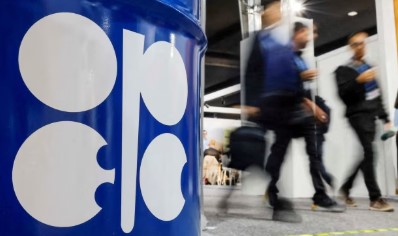The global oil market is set for another adjustment as eight member countries of the OPEC+ alliance announced plans to increase their crude oil production by a total of 137,000 barrels per day starting in October 2025. The decision was reached on Sunday after a ministerial meeting held via videoconference, which was attended by ministers of energy from the participating countries.
According to a statement released by the Ministry of Energy and Mines, the countries involved in this coordinated move are Algeria, Saudi Arabia, the United Arab Emirates (UAE), Iraq, Kazakhstan, Kuwait, Oman, and Russia. These nations are part of a broader coalition within OPEC+ that has been voluntarily implementing production cuts to stabilize the oil market over the past two years.
For Algeria, the adjustment will mean an additional 4,000 barrels of crude oil per day from October. The country’s Minister of State and Minister of Energy, Mines, and Renewable Energies, Mohamed Arkab, represented Algeria at the virtual meeting, where he joined his counterparts to deliberate on market conditions and production strategies.
During the discussions, the ministers examined the present state of the global oil market and its short-term outlook. They also reviewed the levels of compliance with earlier commitments on voluntary production cuts and discussed how to handle any excess output from member countries.
Minister Arkab, while speaking on Algeria’s position, described the latest decision by the eight OPEC+ members as a careful and calculated one. He explained that the oil market is still facing some uncertainties despite demand being relatively strong in many parts of the world. He stated: “The decision taken by the OPEC+ group of eight countries reflects a cautious and balanced approach. Despite the persistence of some uncertainties in the oil market, global demand remains generally supported.”
He went further to explain that although the demand outlook is positive, growth in consumption is expected to be at a slower pace in the coming months compared to previous quarters. “However, it is expected to grow at a more moderate pace in the coming months. This decision reflects the group’s willingness to exercise a sense of responsibility and maintain market stability, while keeping the flexibility to reassess the situation if circumstances warrant,” Arkab added.
The announcement comes at a time when international oil prices have been fluctuating due to multiple factors, including global economic trends, geopolitical tensions, and energy transition policies in major economies. Analysts believe that the decision by these eight OPEC+ members is aimed at preventing market volatility while ensuring that oil producers still benefit from steady revenue inflows.
OPEC+ as a group has been known for making strategic adjustments to its output in response to global supply and demand realities. Since 2020, when the COVID-19 pandemic triggered one of the biggest collapses in oil demand, the group has managed the market through a mix of voluntary cuts and gradual increases. The latest step signals that producers are still paying close attention to balancing supply with global needs.
For Algeria, the additional 4,000 barrels per day represents a modest boost to its production quota, but industry experts say it could help the country slightly increase its export revenues. Algeria, like many oil-producing nations, has been using its energy sector earnings to support its economy and fund government programmes.
The broader implication for the global market is that while supply will see a small increase, the OPEC+ alliance still intends to avoid oversupply that could push prices down significantly. Market watchers will be monitoring how this decision interacts with demand growth in major consuming regions such as Asia, Europe, and North America.
As October approaches, industry players will also keep an eye on compliance levels among the eight countries, since OPEC+ has often emphasized the need for discipline and unity in carrying out its production policies. The meeting ended with member states reaffirming their commitment to cooperation and dialogue in managing oil production for the benefit of both producers and consumers.
